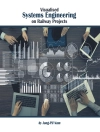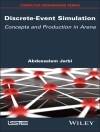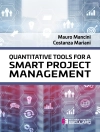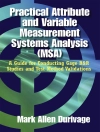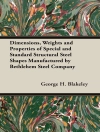This book explores cutting-edge medical imaging advancements and their applications in clinical decision-making. The book contains various topics, methodologies, and applications, providing readers with a comprehensive understanding of the field’s current state and prospects. It begins with exploring domain adaptation in medical imaging and evaluating the effectiveness of transfer learning to overcome challenges associated with limited labeled data. The subsequent chapters delve into specific applications, such as improving kidney lesion classification in CT scans, elevating breast cancer research through attention-based U-Net architecture for segmentation and classifying brain MRI images for neurological disorders. Furthermore, the book addresses the development of multimodal machine learning models for brain tumor prognosis, the identification of unique dermatological signatures using deep transfer learning, and the utilization of generative adversarial networks to enhance breast cancer detection systems by augmenting mammogram images. Additionally, the authors present a privacy-preserving approach for breast cancer risk prediction using federated learning, ensuring the confidentiality and security of sensitive patient data. This book brings together a global network of experts from various corners of the world, reflecting the truly international nature of its research.
Tabella dei contenuti
Improved Classification of Kidney Lesions in CT scans using CNN with Attention Layers: Achieving High Accuracy and Performance.- Domain Adaptation in Medical Imaging: Evaluating the Effectiveness of Transfer Learning.- Elevating Breast Cancer Research: Discovering New Frontiers with Attention-Based U-Net Architecture for Segmentation.- Early Skin Cancer Detection in Computer Vision: Leveraging Attention-Based Deep Ensembles.- Incorporating Residual Connections into a Multi-Channel CNN for Interpretable Lung Cancer Detection in Digital Pathology.- Privacy Preserving Breast Cancer Risk Prediction with Mammography Images Using Federated Learning.- Federated Learning for Scabies Recognition: A Privacy-Preserving Approach.- An Improved Transfer Learning based Approach for the Classification of Multi-Stage HER2 Breast Cancer from Hematoxylin and Eosin Images.- Unveiling the Unique Dermatological Signatures of Human Monkeypox, Chickenpox, and Measles through Deep Transfer Learning Model.- Development of a Deep Learning Framework for Brain Tumors Classification Using Transfer Learning.- Featured-based brain tumor image registration using a Fussy-clustering segmentation approach.- Enhancing Breast Cancer Detection Systems: Augmenting and Upscaling Mammogram Images using Generative Adversarial Networks.- A Deep Learning Approach Bone Marrow Cancer Cell Multiclass Classification using Microscopic Images.- Detecting Skin Cancer Through the Utilization of Deep Convolutional Neural Networks and Generative Adversarial Networks.
Circa l’autore
M. F. Mridha (Senior Member, IEEE) is currently working as Associate Professor at the Department of Computer Science, American International University-Bangladesh (AIUB). Before that he worked as Associate Professor and Chairman in the Department of Computer Science and Engineering, Bangladesh University of Business and Technology (BUBT). He also worked as CSE Department Faculty Member at the University of Asia Pacific and as Graduate Head from 2012 to 2019. He received his Ph.D. in AI/ML from Jahangirnagar University in the year 2017. His research experience, within both academia and industry, results in over 150 journal and conference publications. His research work contributed to the reputed Journal of Scientific Reports Nature, Knowledge-Based Systems, Artificial Intelligence Review, Engineering Applications of Artificial Intelligence, IEEE Access, Sensors, Cancers, Biology and Applied Sciences, etc. He has served as Program Committee Member in several international conferences/workshops. He served as Academic Editor of several journals including PLOS ONE Journal. He has served as Reviewer of reputed journals like IEEE Transactions on Neural Networks, IEEE Access, Knowledge Base System, Expert System, Bioinformatics, Springer Nature, etc. and PC Member of many international conferences like ICCIT, HONET, ICIEV, IJCCI, ICAEE, ICCAIE, ICSIPA, SCORED, ISIEA, APACE, ICOS, ISCAIE, BEIAC, ISWTA, IC3e, ISWTA, Co AST, ic IVPR, ICSCT, 3ICT, DATA21, etc.
Nilanjan Dey is Associate Professor at the Department of Computer Science and Engineering, Techno International New Town, Kolkata, India. He is Visiting Fellow at the University of Reading, UK. He also holds a position of Adjunct Professor at Ton Duc Thang University, Ho Chi Minh City, Vietnam. Previously, he held an honorary position of Visiting Scientist at Global Biomedical Technologies Inc., CA, USA (2012–2015). He was awarded his Ph.D. from Jadavpur University in 2015. He is Editor-in-Chief of the International Journal of Ambient Computing and Intelligence , IGI Global, USA. He is Series Co-editor of Springer Tracts in Nature-Inspired Computing (Springer Nature), Data-Intensive Research (Springer Nature), and Advances in Ubiquitous Sensing Applications for Healthcare (Elsevier). He is Associate Editor of IET Image Processing and Editorial Board Member of Complex & Intelligent Systems, Springer Nature, Applied Soft Computing, Elsevier, etc. He is having 35 authored books and over 300 publications in the area of medical imaging, machine learning, computer-aided diagnosis, data mining, etc. He is Fellow of IETE and Senior Member of IEEE.


